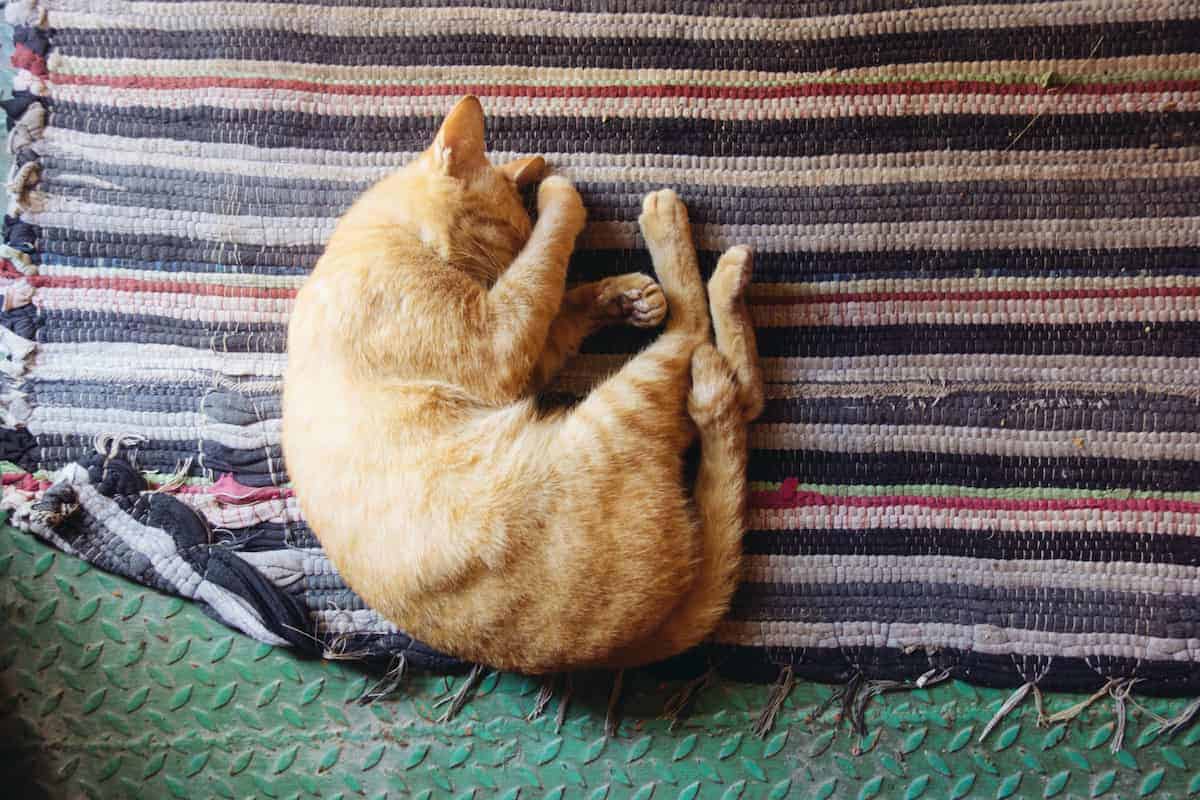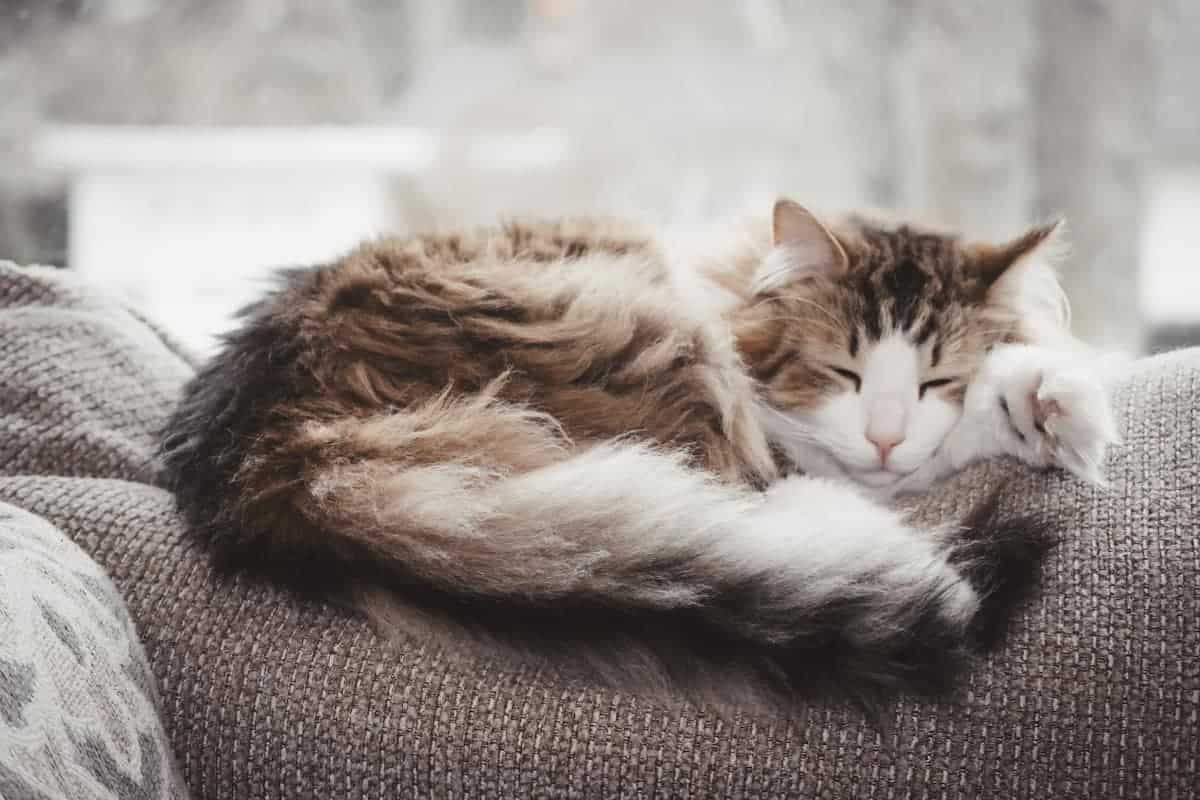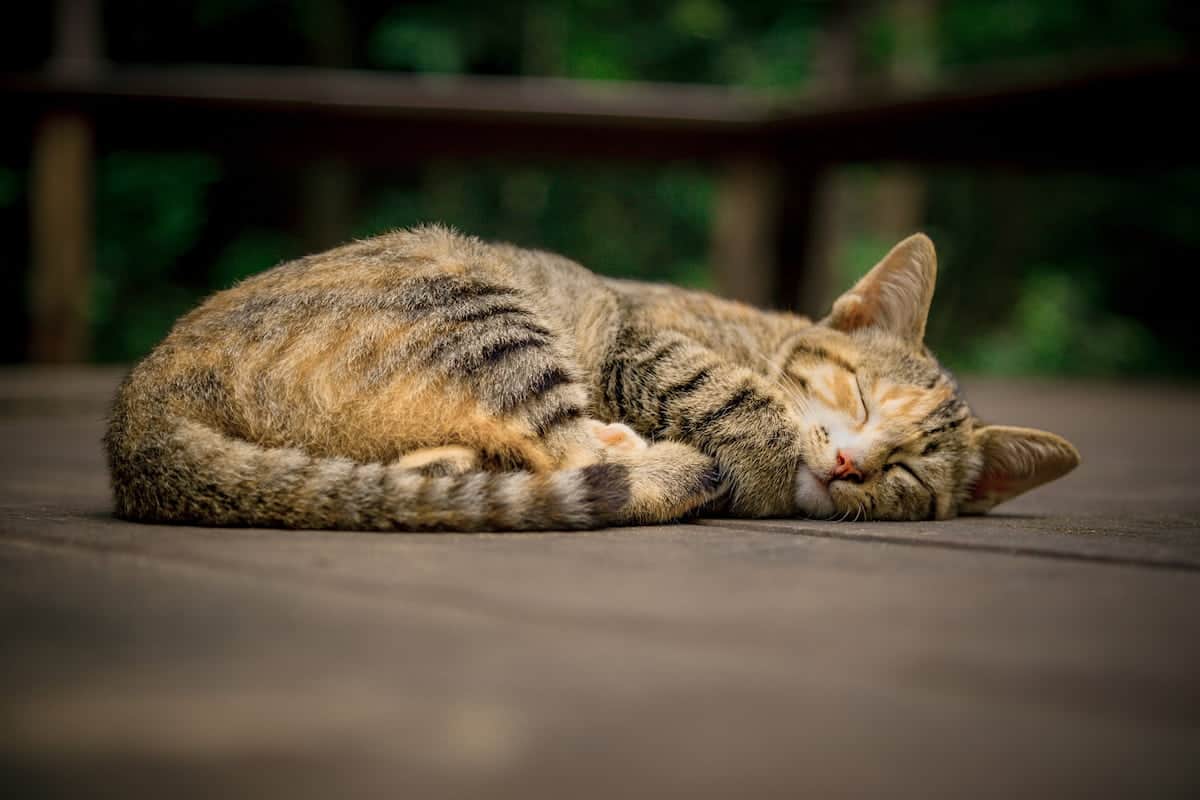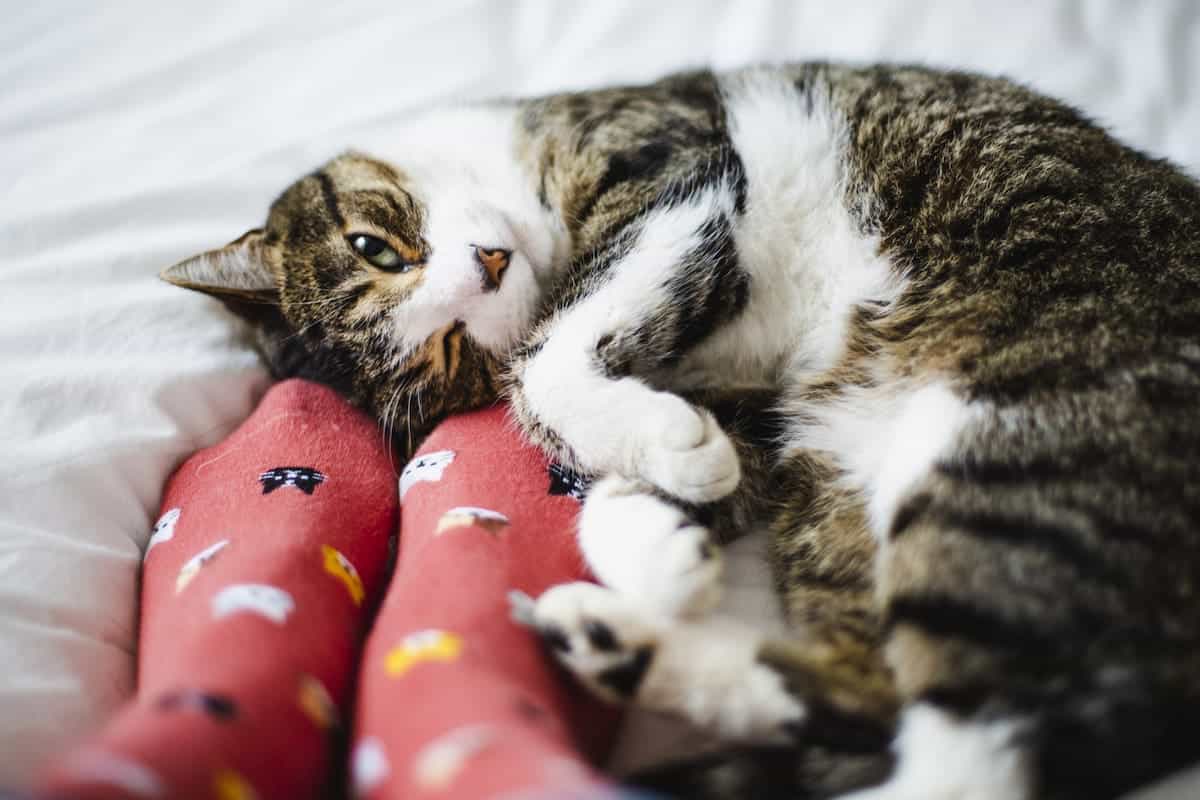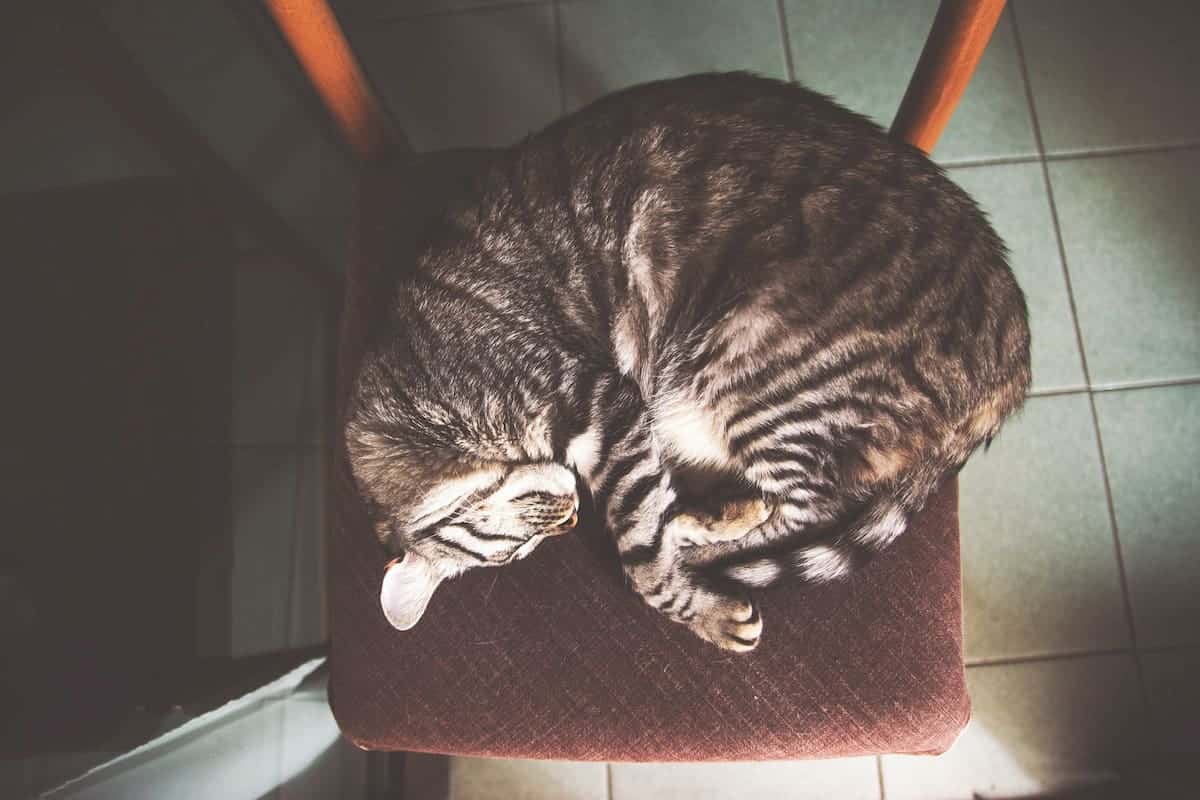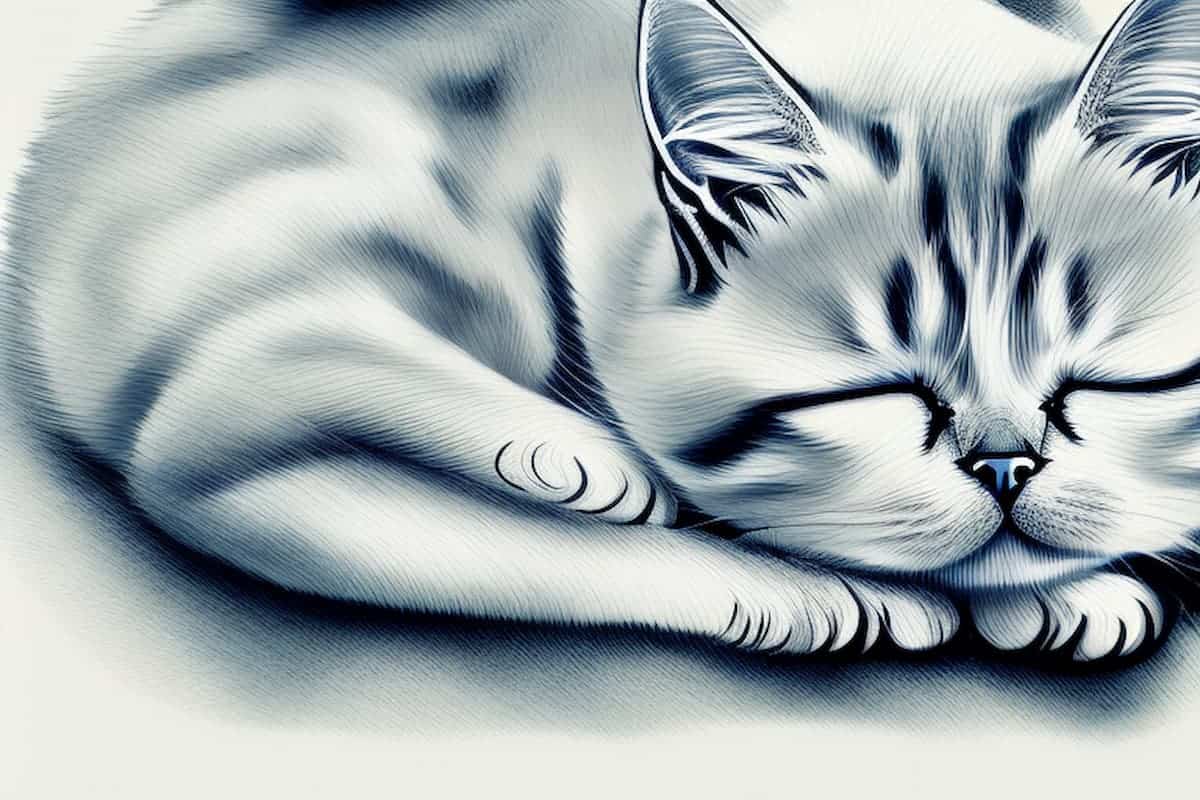There’s something about the sound of a purring cat that just makes the world feel a little bit better. But have you ever stopped to wonder why cats purr when they sleep? Is it simply because they’re content and happy? Or, is there another reason altogether? In this article, we will explore the different reasons why cats purr in their sleep, and what it all means for our feline friends.
Why Do Cats Purr?
Cats purr for a number of reasons, but the most commonly known reason is to show affection. This doesn’t always mean that a purr is a good thing though. Cats purr to express emotions that they can’t otherwise get out. For example, if a cat is feeling anxious or scared, it may purr to try and calm itself down.
Purring can also be a sign of happiness. When a cat is content and relaxed, it’ll often purr as it sleeps (more on that later).
Some people believe that cats also purr to help heal their bodies. It isn’t uncommon for cats to purr as a way of bonding with one another either. Cats purring in their sleep tend to tell a similar story. So why do cats purr in their sleep?
They’re Healing or Growing
Not many people know this about cats, but they have self-healing powers (maybe that’s why ancient Egyptians worshipped them!). You read that right — cats use purring to help heal themselves and to help themselves grow. This is done through vibration.
Vibrations are used in many different forms of therapy, from music to vibrational therapy for tissue regeneration. A cat’s purr varies from between 25 to 150 Hz, which just happens to be around the same frequencies used in vibrational therapy. That means that cats instinctively have healing powers! They can even help you heal, as many cat owners report recovering from illness more quickly due to their cat’s purr. This could help explain why they purr so often and even in their sleep
They Might Be Dreaming
Cats sleep much more than the average human, but their sleep stages are still quite similar. They go through light sleep (cat naps), deep sleep (slow-wave sleep), and REM sleep (rapid eye movement).
During REM sleep, it’s common for your cat to twitch gently or make faint noises. This has often been attributed to dreaming. Just like with humans, dreams can be incredibly varied and interesting for cats. So, if you catch your cat purring while it’s sleeping, make sure you don’t wake it up — it might just be having a good dream!
They’re Bonding
When there are multiple cats present, you might notice that they often purr around each other. This is because they’re trying to create a bond with the other cat. It’s their way of saying “I like you, let’s be friends!” This behavior also occurs while they’re unconscious and asleep.
Purring can also be a sign of affection from your cat to you as well. When your cat purrs while sitting on your lap or next to you, it means your cat trusts you and feels comfortable around you. If your cat is laying on top of you or next to you while you sleep, there’s a good chance that it’s just bonding with you unconsciously.
They’re Just Happy
This is probably the most common reason why cats purr when they sleep. They’re simply content and happy! This usually occurs when your cat has a good relationship with you and feels safe and loved. A purring cat is often a sign that all is right in its world.
Cats are vulnerable, despite the untouchable persona they may often portray. It is actually difficult for them to feel safe and secure enough to relax and drift off into a purring sleep, so whenever you see this, know that they feel right at home, safe and protected.
Is Your Cat Purring or Snoring?
Snoring cats are just as cute as purring cats, but this noise has a slightly different meaning. Cats that snore are usually in a deep sleep and are having trouble breathing. This can be due to an obstruction in their airways, such as hairballs or swollen glands, nasal floor issues, or simply the position they are sleeping in.
If your cat is snoring, you don’t need to take it to the vet to get it checked out immediately. Snoring is usually a harmless occurrence, which poses no threat to its health, unless it prevents it from sleeping.
Cats purr for many different reasons, but most of the time it’s simply because they’re happy! When your cat purrs while sleeping, it’s a sign that it feels safe and content. So, the next time you see your kitty dozing off with a gentle purr, know that you’re one of the reasons why your cat is so content.
How to Tell the Difference
Snoring and purring are similar sounds, so it’s hard to tell the difference if you’re not sure which one is which. However, there are a few ways to distinguish between the two.
If your cat is snoring, it will usually be in a deep sleep and have trouble breathing. Purring cats, on the other hand, will be in a lighter sleep stage and not have any difficulty breathing.
Additionally, purring cats’ mouths will usually be closed while snoring cats’ mouths might be open slightly. Lastly, if you feel your cat’s body closely while it’s asleep, you might feel it vibrating from its purring — this won’t happen with snoring cats.
Does Purring Always Mean They’re Happy?
Despite what most people think, a purring cat doesn’t always equate to a content cat. Sometimes cats purr to help calm themselves down or comfort themselves in stressful situations. For example, if a cat is in pain, it might purr to help soothe itself. Additionally, cats that are anxious or fearful may also purr as a way to calm down. So while most of the time a purring cat equals a happy cat, it’s not always the case.
Conclusion
Cats purr for many different reasons, but the most common one is happiness. When your cat purrs while sleeping, it’s a sign that it either feels safe and content, it’s dreaming, or that it’s healing or growing. So the next time you see your kitty dozing off with a gentle purr, know that you’re one of the reasons why it’s so content.
